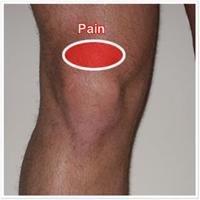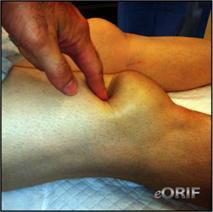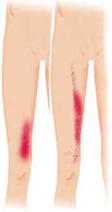Quadriceps Tendon Rupture (Part Two)
Tendon Weakening
A weakened quadriceps tendon is more likely to tear. Several factors can lead to tendon weakening.


Tendinitis. Inflammation of the quadriceps tendon, called quadriceps tendinitis, weakens the tendon. It can also cause small tears. Quadriceps tendinitis is more common in people engaged in running or jumping sports (run & jump).
Chronic diseases. A weakened tendon can be caused by diseases that hinder or alter blood supply. Chronic diseases that can weaken the tendon include:
- Chronic kidney failure
- Conditions related to kidney dialysis
- Hyperparathyroidism
- Gout
- Leukemia
- Rheumatoid Arthritis
- Systemic Lupus Erythematosus (SLE)
- Diabetes mellitus
- Infections
- Metabolic disease
Use of steroids. The use of corticosteroids leads to weakening of muscles and tendons.
Fluoroquinolones. This particular type of antibiotic has been linked to the tearing of the quadriceps tendon.
Immobilization. When you stay for an extended period of time without physical activity, the muscles and tendons that support the knees lose strength and flexibility.
Surgery
Although it is rare, the rupture of the quadriceps tendon has occurred after a knee surgery or dislocation.
Symptoms
When there is a tear of the quadriceps tendon, there is often a popping sensation. This is followed by pain and swelling. Other symptoms include:
- A gap or discontinuity above the knee cap where the tendon is torn.
- Bruising
- Sensitivity
- Cramps
- The knee cap may drop or hang down because the tendon is torn
- You are unable to lift your leg or straighten the knee.
- Difficulty walking due to the sensation of the foot giving way.

